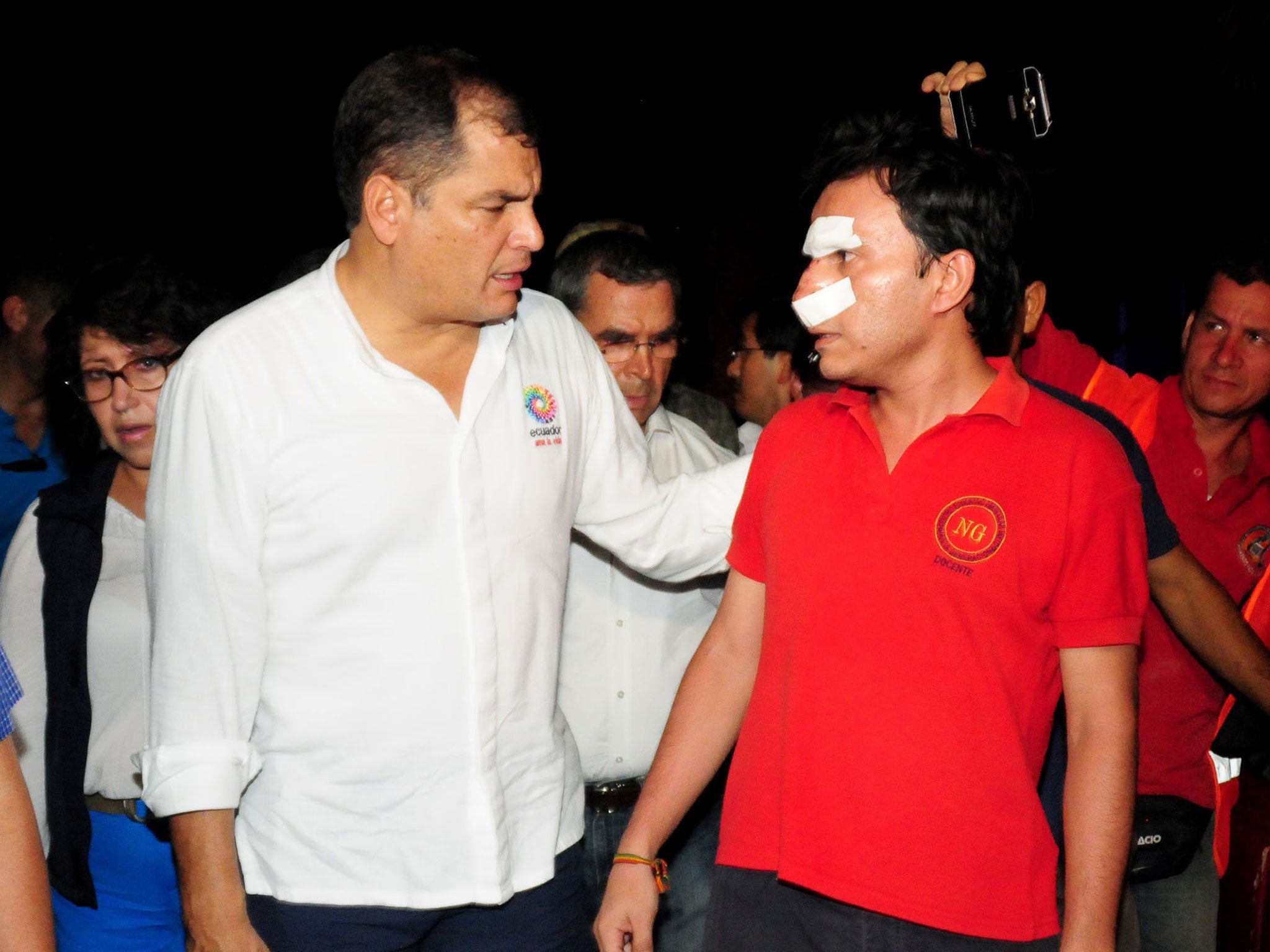Ecuador earthquake death toll rises to 272 with 'signs of life in much of the rubble'
President confirms 272 deaths and 2,068 injured and says he fears those figures will increase

The death toll from Ecuador's biggest earthquake in decades has soared to 272 as survivors cobbled together makeshift coffins to bury loved ones, lined up for water and sought shelter beside the rubble of their shattered homes.
The 7.8 magnitude quake struck off the Pacific coast on Saturday and was felt around the Andean nation of 16 million people, causing panic as far away as the highland capital Quito and destroying buildings, bridges and roads.
"Ecuador has been hit tremendously hard... This is the greatest tragedy in the last 67 years," said a shaken President Rafael Correa, who rushed back to Ecuador from a visit to Italy.
"There are signs of life in much of the rubble and that is the priority," Correa said in a televised address to the nation.
He confirmed 272 deaths and 2,068 injured and said he feared those figures would increase.
Coastal areas nearest the epicenter were hit hardest, especially Pedernales, a rustic tourist spot with beaches and palm trees now laden with debris from pastel-colored houses.
Late into the night, firefighters clambered through the rubble and used jackhammers to break through concrete slabs potentially covering victims. Crowds looked on while others curled up for the night amid the debris.
Dazed residents recounted a violent shake, followed by a sudden collapse of buildings that trapped people in wreckage.
"You could hear people screaming from the rubble," Agustin Robles said as he waited in a line of 40 people for water outside a stadium in Pedernales. "There was a pharmacy where people were stuck and we couldn't do anything."
There were more than 200 aftershocks, mainly in the Pedernales area. A state of emergency was declared in six provinces.
The quake has piled pain on the economy of OPEC's smallest member, already reeling from low oil prices, with economic growth this year projected at near-zero.
Survivors bundled up to spend the night next to their destroyed homes. Many had earlier queued up for food, water and blankets outside the blue-and-white stadium.
Inside the stadium, tents housed the dead and medical teams treated hundreds of survivors. About 91 people died in Pedernales and some 60 percent of houses were destroyed, according to Police Chief General Milton Zarate.
"We heard the warning so luckily we were in the street because the entire house collapsed. We don't have anything," said Ana Farias, 23, the mother of 16-month-old twins, as she collected water, food and blankets from rescuers.
"We're going to have to sleep outside today."
Other survivors hammered together shelters in empty lots. Police patrolled the dark town, where power remained off, while some rescuers plowed on.
Locals used a small tractor to remove rubble and also searched with their hands for trapped people. Women cried after a corpse was pulled out.
In Portoviejo, around 180 kilometers (112 miles) south of Pedernales, authorities said some 130 inmates escaped from the El Rodeo prison after its walls collapsed. More than 35 have been recaptured.
In Ecuador's largest city, Guayaquil, rubble lay in the streets and a bridge had fallen on a car.
"It was horrible. It was as if it was going to collapse like cardboard," said Galo Valle, 56, who was guarding a building in the city where windows fell out and parts of walls broke.
"I prayed and fell to my feet to ask God to protect me."
About 13,500 security force personnel were mobilized to keep order around Ecuador, and $600 million in credit from multilateral lenders was immediately activated for the emergency, the government said.
Reuters
Join our commenting forum
Join thought-provoking conversations, follow other Independent readers and see their replies
Comments